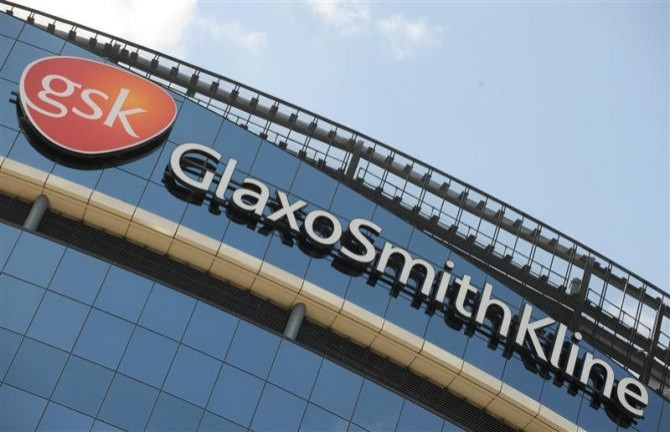GSK Set for Human Genome Takeover

GlaxoSmithKline is expected to announce a deal to buy Human Genome Sciences for about $2.8 billion as soon as Monday, ending a three-month hostile pursuit of the U.S. biotech company on friendly terms after sweetening its offer.
Sources familiar with the situation said Britain's biggest drugmaker was set to pay around $14 per share, up from $13 offered previously, which Human Genome - an early pioneer of gene-based drug discovery - had rejected as inadequate.
Biotechnology companies are in increasing demand as Big Pharma companies seek new products to replace older medicines that are going off patent in the biggest wave of drug patent expiries in history.
The acquisition will secure GSK full rights to Benlysta, a recently-launched drug for lupus, a disease of the immune system, and other experimental medicines for diabetes and heart disease.
A deal is expected to be announced before the U.S. stock market opens, the sources said, asking not to be identified because the matter is not public.
The agreement has yet to be finalized and the companies are still working out last-minute details, the sources said.
"It looks like a great conclusion for Glaxo. At around $14 a share, it is marginally higher than they first pitched but lower than I expected them to have to pay," said Navid Malik, an industry analyst at Cenkos Securities.
He sees the deal as a "nice to have" rather than a need to have for GSK, whose $112 billion market value dwarves that of Human Genome. GSK will now enjoy 100 percent of the upside if the biotech firm's drugs live up to their promise. Shares in the British group traded 0.5 percent higher on Monday morning.
There have been a spate of acquisitions of biotech companies this year as large pharmaceutical companies seek to rebuild their pipelines.
Most recently, Bristol-Myers Squibb agreed to buy diabetes specialist Amylin Pharmaceuticals by sharing the $7 billion cost of the deal with AstraZeneca.
INVESTOR PRESSURE
Human Genome, which rejected GSK's $2.6 billion offer in April as too low and launched an auction process, had come under pressure from investors to try and strike a deal with the British drugmaker in the absence of any alternative bids.
The U.S. company set itself a July 16 deadline for finding higher bids but interest has been limited because GSK, its long-time partner, already has marketing rights to its drugs.
U.S. biotech company Celgene was at one stage considering whether to bid and was conducting due diligence, according to a separate source familiar with the matter, but negative analyst and investor reaction when news of those discussions broke deterred the U.S. group.
Without alternative bids, Human Genome shareholders had been pressing the company's management to engage with GSK before July 16 to avoid a share price collapse - and that argument acted as a trigger for weekend discussions.
Human Genome reached out first to its hostile suitor to negotiate a deal, according to one of the sources.
While the expected deal incorporates a small bump to the existing $2.6 billion offer, a so-called contingent value right (CVR) -- an additional benefit tied to a specific drug's success -- is not expected to be part of a arrangement, the sources added.
A spokesman for GSK declined to comment, while officials at Human Genome were not immediately available.
BENLYSTA AND BEYOND
Last year, Human Genome and GSK won approval for Benlysta, the first new treatment for lupus in 50 years. But the drug's launch disappointed investors and Human Genome's shares fell from a high above $25 to a low of $6.51 in December.
GSK made its offer a few months later, prompting Human Genome to launch an auction with the help of Credit Suisse and Goldman Sachs.
Human Genome and GSK share rights to Benlysta. They are also collaborating on two other experimental drugs in late-stage trials for heart disease and diabetes, where GSK owns a large majority of the economic interest.
Buying Human Genome will give GSK full rights to these partnered drugs and GSK will be also be able to strip out costs. As a result, GSK's chief executive, Andrew Witty, told investors in May he expected to deliver "an extraordinary return" through the acquisition.
Human Genome investors had been hoping that GSK would sweeten its offer and the shares closed on Friday at $13.58 - above GSK's offer but well down on the level of more than $15 hit in April, soon after the unsolicited offer was made public.



























